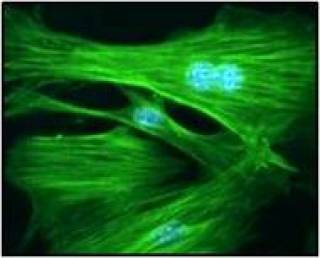Pioneering research is central to the FLARRE Consortium. Click on the tabs to discover more about what we do - Research with FLARRE.
- Inflammation
- Role of the innate and adaptive immune system in tissue injury
- Use of Biologics and SMI in the treatment of autoimmune diseases
- Genomic studies and gene regulation in juvenile arthritis and multisystem familial inflammatory disease
- B-cell signalling and autoimmunity
- Morphogen signalling in determining the fate of T-cell differentiation
- Monocyte/Macrphage plasticity and differentiation programmes in inflammation
- Human T-cell differentiation and longevity - loss of immunity in ageing humans
- Molecular and biochemical pathways that regulate the resolution of acute immune reactions and inflammation
- Regulation of lymphocyte differentiation based on the cell environment
- Tissue Repair and Scarring
- Tissue repair process mechanisms
- Role of connexins in chronic wound healing and fibrosis - reduce scarring and inflammation
- Biophysical and functional properties of vascular potassium channels - roles in sepsis, vascular remodelling and pulmonary hypertension
- Calcineurin and its role in smooth muscle proliferation
- Regeneration of skeletal muscle - identification of progenitor cell types and their genetic manipulation
- Fibrosis
- Pathways leading to chronic kidney disease and renal fibrosis
- Cellular and molecular mechanisms and pathogenesis of fibrosis in skin, connective tissue, kidney, liver, intestine and eye
- Role of TGF beta superfamily in the initiation and progression of fibrosis and pulmonary hypertension
- Role of fibroblast progenitor populations in fibrosis
- Genetic and epigenetic mechanisms of scarring and fibrosis
- The role of the microenvironment and cell-matrix interactions
- Signal transduction and morphogen pathways in tissue remodeling
- Delineating procoagulant signalling pathways leading to ALI and COPD
- Myofibroblast differentiation and cell interactions in the pathogenesis of fibrosis
- Pathogenesis of scleroderma
- Cirrhosis, portal hypertension and alcohol- and lipotoxicity-induced liver fibrosis
- Eye infections, scarring conjunctivitis and fibrotic blinding diseases
- ECM proteomic and bioinformatic studies of fibrosis
- Translational Approaches
- Development and use of in vivo models of human disease
- Design and synthesis of small molecule drug candidates and molecular probes for epigenetic proteins
- Liver regenerative medicine
- New therapies for rheumatoid arthritis and other autoimmune rheumatic diseases - defining the cellular and molecular mechanisms that switch off inflammation
- Diagnostic and prognostic tools for determining the rate of progression of advanced chronic liver disease
 Close
Close


